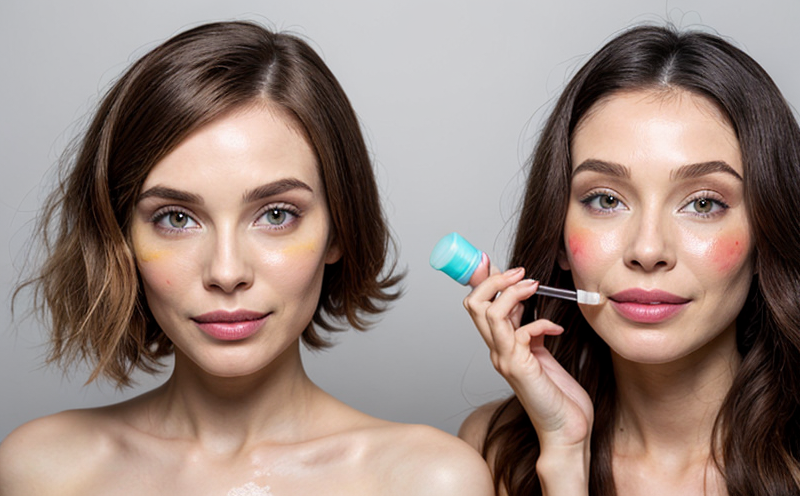Allergen Testing of Essential Oils in Natural Cosmetics
The demand for natural and organic cosmetic products has been on the rise, driven by consumer awareness about synthetic ingredients. Essential oils are a key component in these products due to their aromatic properties and therapeutic benefits. However, the use of essential oils also poses certain challenges, especially with regards to allergenic potential. Allergen testing is crucial not only for compliance with regulatory requirements but also for ensuring product safety and maintaining customer trust.
Essential oils can vary widely in composition depending on factors such as plant species, growing conditions, and processing methods. This variability means that the allergenic properties of essential oils are not always predictable. Regulatory bodies around the world have recognized the importance of allergen testing, leading to stringent standards for cosmetic products containing natural ingredients.
International standards, such as ISO 21759:2018, provide a framework for allergenicity testing of cosmetics. This standard includes specific procedures and criteria that laboratories must follow to ensure accurate and reliable test results. The testing process typically involves the use of in vitro methods, which are designed to mimic the human immune response without using live animals.
Our laboratory employs state-of-the-art equipment and experienced scientists to conduct allergen testing on essential oils used in natural cosmetics. We utilize advanced techniques such as ELISA (Enzyme-Linked Immunosorbent Assay) and patch tests, which are widely accepted in the industry for their precision and reliability.
Before initiating any allergen testing, it is important to prepare the specimens correctly. This involves extracting the essential oil from its natural source and ensuring that the sample is representative of the batch being tested. Once prepared, the samples undergo rigorous analysis using our sophisticated instrumentation. Our laboratory ensures that all testing adheres strictly to international standards, providing accurate results that are both reliable and compliant.
The process of allergen testing begins with the selection of appropriate reference materials and calibration standards. This is followed by extraction of potential allergens from the essential oils, which may include common allergens such as limonene, linalool, or citral. The extracted compounds are then analyzed using high-resolution mass spectrometry to identify their presence and concentration.
The results of our testing are presented in a detailed report that includes all relevant data, including concentrations of detected allergens, comparison with regulatory limits, and recommendations for product formulation adjustments if necessary. Compliance with international standards is ensured through rigorous quality control measures at every stage of the process.
Our team of experts can provide guidance on how to select appropriate essential oils that meet both regulatory requirements and customer expectations. By leveraging our comprehensive testing services, manufacturers can ensure their products are safe and well-received in the marketplace.
Why It Matters
Allergen testing of essential oils is critical for several reasons:
- Regulatory Compliance: Many countries have strict regulations regarding allergens in cosmetic products. Failure to comply can lead to product recalls, legal penalties, and damaged brand reputation.
- User Safety: Allergen testing helps protect consumers who may be sensitive or allergic to certain compounds found in essential oils.
- Brand Reputation: Companies that ensure their products are safe from allergens can build a strong trust relationship with customers, leading to increased loyalty and repeat business.
- Product Development: Understanding the allergenic properties of essential oils aids in formulating safer, more effective cosmetic products without compromising quality or efficacy.
The importance of allergen testing cannot be overstated. It is a vital step in ensuring that natural and organic cosmetics meet both legal requirements and consumer expectations.
Industry Applications
The application of allergen testing extends beyond just natural and organic cosmetics to include:
- Skin Care Products: Lotions, creams, serums, and other skincare items often contain essential oils that need to be tested for potential allergens.
- Hair Care Products: Shampoos, conditioners, and styling products may also incorporate essential oils requiring allergen testing.
- Makeup and Cosmetics: Items such as foundations, eyeliners, and mascaras can contain natural ingredients that must be checked for allergens.
In addition to these specific applications, allergen testing is crucial in the broader context of product development. By understanding which components are likely to cause allergic reactions, manufacturers can make informed decisions about ingredient sourcing, formulation adjustments, and labeling practices.
Use Cases and Application Examples
- Skin Irritation: Testing essential oils for potential allergens helps prevent skin irritation and allergic reactions in consumers with sensitive skin.
- Airborne Allergens: Essential oils used in air fresheners or diffusers can be tested to ensure they do not release harmful airborne allergens.
- Safety in Children’s Products: Testing essential oils for use in children’s cosmetics ensures that these products are safe from potential allergens.
- Gloves and Protective Equipment: Essential oils used in gloves or protective equipment can be tested to ensure they do not cause allergic reactions among users.
These examples highlight the diverse range of applications for allergen testing, emphasizing its importance across various segments within the cosmetic industry.





